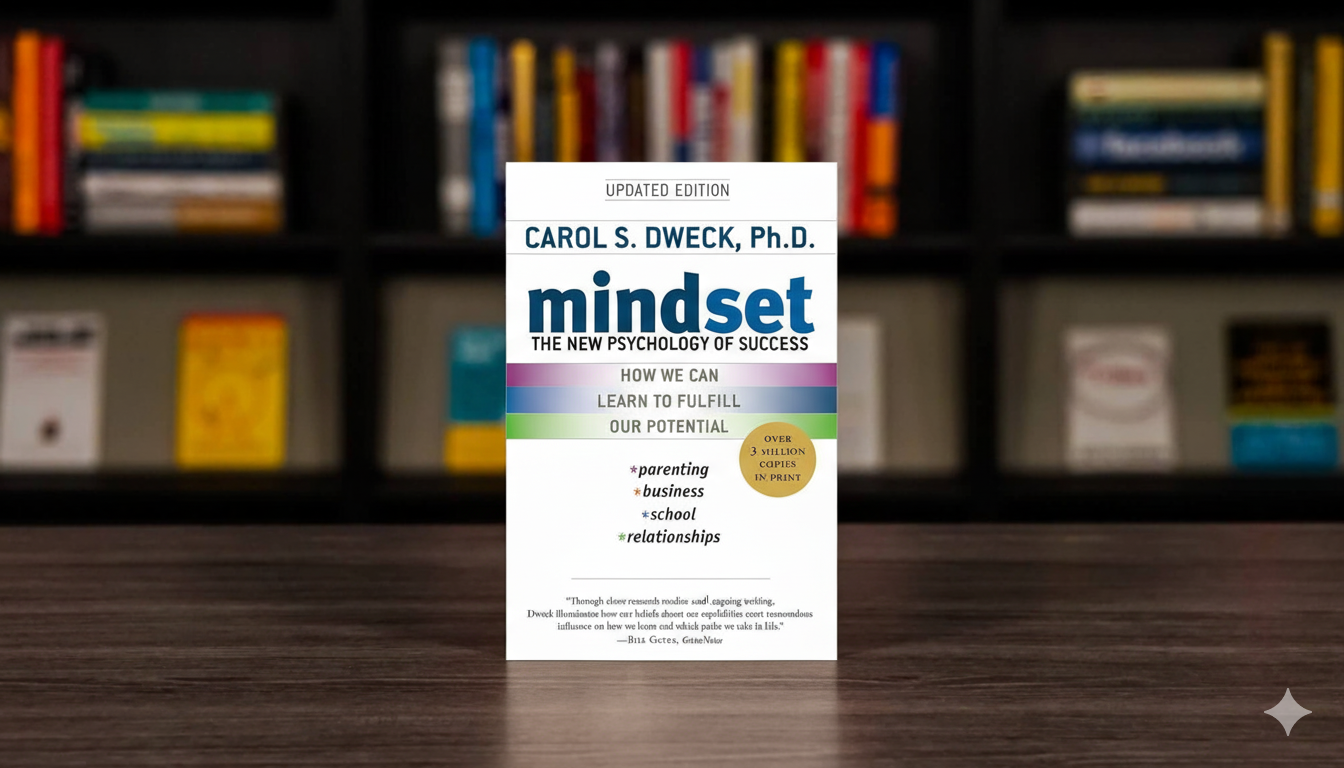Have you ever thought to yourself, "I'm just not a math person," or "I'll never be good at public speaking"? Or have you looked at a successful person and assumed they were just "born with it"? This fundamental belief about our abilities is one of the most powerful forces in our lives, and it's the subject of Dr. Carol S. Dweck's groundbreaking book, Mindset: The New Psychology of Success.
After decades of research, Dweck discovered that it's not just talent or effort that leads to success, but whether we approach our goals with a fixed mindset or a growth mindset. This one simple distinction can change everything.
The Two Mindsets That Define Your World
Dweck's research reveals two core beliefs about intelligence and ability that people hold.
The Fixed Mindset 🛑
In a fixed mindset, you believe your qualities are carved in stone. Your intelligence, personality, and creative ability are static givens that you can't change in any meaningful way.
- The Belief: "I have a certain amount of intelligence, and that's that."
- The Goal: To look smart at all costs and never look dumb.
- Challenges: Are avoided. A challenge carries the risk of failure, which would expose your perceived lack of ability.
- Effort: Is seen as a bad thing. If you were truly smart or talented, you wouldn't need to try so hard.
- Feedback: Is taken personally. Criticism is seen as an attack on your core abilities.
- Success of Others: Is threatening. It makes you feel jealous and insecure.
The Growth Mindset 🌱
In a growth mindset, you believe that your basic abilities can be developed through dedication and hard work. Brains and talent are just the starting point. This view creates a love of learning and a resilience that is essential for great accomplishment.
- The Belief: "I can learn and grow through effort and experience."
- The Goal: To learn and stretch yourself, even if it means making mistakes.
- Challenges: Are embraced. They are seen as opportunities to grow and improve.
- Effort: Is seen as the path to mastery. It's what makes you smarter and more capable.
- Feedback: Is welcomed. It's valuable information that helps you learn.
- Success of Others: Is seen as a source of inspiration and learning.
The Power of "Yet"
One of the most powerful tools for shifting from a fixed to a growth mindset is a simple three-letter word: "yet."
When you find yourself saying, "I can't do this," just add "yet" to the end of the sentence. "I can't do this yet." This small change reframes the statement from a permanent state of inability to a temporary point on a learning journey. It opens up the possibility of future success.
Your Mindset is Your Choice
The most liberating message from Dweck's work is that your mindset is not permanent. You can choose to adopt a growth mindset. By understanding the two mindsets, you can start to recognize your own fixed-mindset triggers and consciously choose a different path.
You can choose to see challenges as opportunities, to view effort as productive, and to learn from your mistakes. This shift doesn't just change your results; it changes your entire relationship with learning and with life itself. It's the difference between being a judge of your abilities and being an explorer of your potential. Which will you choose?
